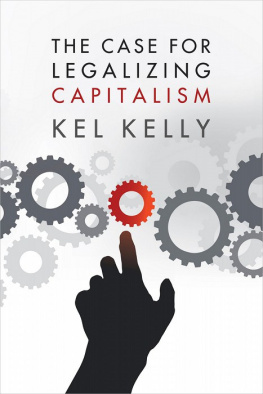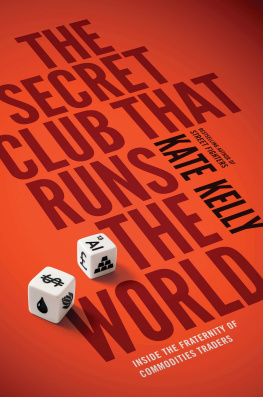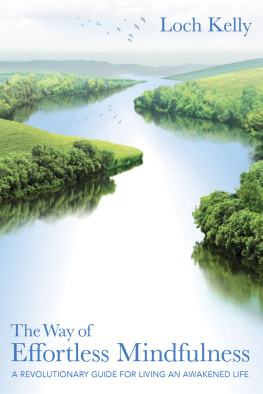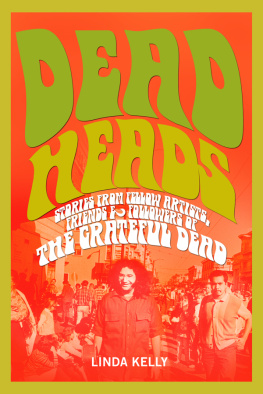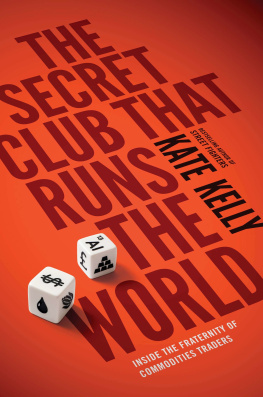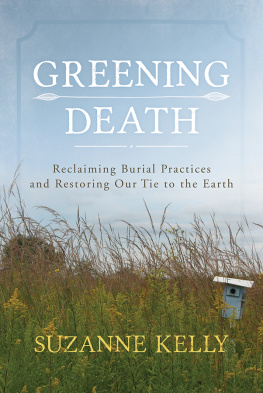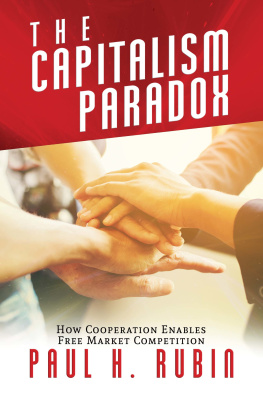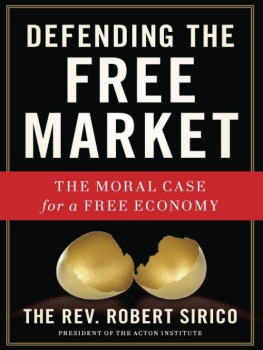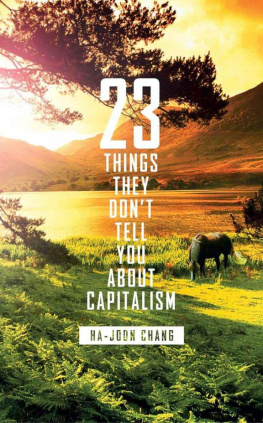The Case for
Legalizing Capitalism
Kel Kelly


2010 by the Ludwig von Mises Institute and published
under the Creative Commons Attribution License 3.0.
http://creativecommons.org/licenses/by/3.0/
Ludwig von Mises Institute
518 West Magnolia Avenue
Auburn, Alabama 36832
mises.org
ISBN: 978-1-933550-62-6
The book is dedicated to the
handful of people in the world who
truly honor morality, principles,
and ethics, consistently, regardless
of personal agendas.
Preface
I FIRST BEGAN to learn about economics in college and from reading and studying the topic subsequently on my own. As my studies progressed, I thought I was on the path to learning how the world worked. But one day, while sitting at a caf in Paris (where I was doing graduate work), the book I was reading introduced me to the great economist Ludwig von Mises and the so-called Austrian school, which I like most people had previously never heard of.
After studying free-market economics, I began to understand how the world really worked, and learned that all other explanations of economics could easily be proven incorrect. I soon began to understand how our nations economic policies in fact actually harm us. I learned that the economic concepts that I, like everyone else, had always thought straightforward and obvious, were completely opposite from what we all simply took on faith. I thought that price controls, wealth redistribution, and government regulation helped and protected people. I had no idea that these things actually harmed those it was intended to help. I further assumed that economic progress was a natural phenomenon: I didnt understand that for over the tens of thousands of centuries that man had existed, improving standards of living had occurred only during a handful of those, and not at all consecutively. Moreover, I didnt know that it was possible for us to cease progressing, at any time, and actually to lose all of the economic gains we have achieved.
As I began to learn true economic cause and effect, I realized that almost everything our government does works against us, and that people unknowingly vote for policies that make them worse off, not better off, because they, too, falsely assumed that they had a grasp on basic economic concepts. I realized that although the new information I was learning was well documented in academic form in the truly free-market circles, for the most part it was not being disseminated to everyday people. This book has been written in order to try and make the public at large aware that most of what they think is good for their lives, in terms of economic policies, is usually not.
The economic insights that I apply here to our many economic and political problems did not originate with me, but are the culmination of centuries of work performed by great economic and philosophical thinkers. I am simply organizing numerous economic analyses originated by others into a single volume, with the hope of addressing most of the political issues that voters are concerned with. I earnestly try to assign credit to the appropriate sources. Any original thoughts or analysis created by others that I use and fail to acknowledge is purely accidental and I deeply regret the omission.
I would also like to defend my tendency of disproportionately using only a handful of sources for the bulk of the economic concepts I present here. Most of my sources in this book are associated with the Ludwig von Mises Institute because it is the world center of the only true free-market school of economics that exists, namely, Austrian Economics (which includes classical economics to a very large degree). The Mises institute, with its support of Austrian economics is therefore, the premier source of research on, and advocacy of, real capitalism. All other schools of economic thought other than this school of Free-Market economics endorse various forms of government control of the economy and of individuals.
Additionally, I feel no need to pretend to have an unbiased presentation and thus to balance capitalistic arguments with anti-capitalistic ones. I do, however, present many anti-capitalistic arguments, and I do so as accurately as possible, but this is for the sole purpose of refuting them, as that is my objective in writing this book. My ultimate goal is not to present all assertions from all competing schools of thought equally, but simply to promote the ones that I have discovered after years of comparing all arguments to be correct.
Besides, the public hears the anti-capitalist arguments daily from popular sources, which themselves are very biased, and which also make no attempt to present correct capitalistic arguments to offset the anti-capitalist assertions they are making. What is needed are counter arguments to these commonly espoused views, not a dispassionate, inconclusive, politically correct comparison. In terms of using limited sources, it is a fact that most economists, journalists, publishers, etc. rely on limited sources, indeed mostly on a single source! A dramatically disproportionate amount all of the economic information relayed today comes from one book published in 1936 by John Maynard Keynes; thus the famous saying Were all Keynesians now. Similarly to how most economists and journalists use this single source as an argument for their economics, I am using 10-15 primary sources from a different school of thought, and one of those sources, Professor George Reisman, is cited more than others (though his views incorporate much of the others).
It should be kept in mind that while most economic schools of thought have political agendas involving the seeking of government power, the Austrian school, as I came to learn, is as close to unbiased as possible. Their only agenda, like mine, is complete social and economic freedom for all, not political or ideological domination (and I dont regard the goal of freedom as an ideology, but a natural right). Austrians/Capitalists cheer only those supporting true freedom, and are against all who oppose it; they do not promote political parties per se. It is precisely because they choose these principles and this morality rather than political power and control over other groups that they dont in fact achieve power, influence or recognition, and are thus little known and have little influence. But just because they are unpopular does not mean that they are not economically, and morally, in the right.
I ask all readers to approach the material in this book with an open mind, emotional detachment, and honesty with themselves. After all, most of us, no matter the political persuasion, have the same ultimate goal: to make the world a better place for everyone, and to help those who are truly in need. What I try to show here is that we can achieve these goals without competing for political power and without harming one group in order to benefit another. And as it turns out, it is in fact precisely the freedom that I am defending (proposing) that brings prosperity and better lives to everyone.
I would like to thank several groups of people for assisting me in this effort. Christine Perkell greatly supported me not only by discussing and debating the public perception of many topics in the book, and the merits of addressing the topics from different angles, but by reviewing and editing the entire book. Infelicities that remain are due to my own choices.
I would like to thank as well my high school English teacher and close friend Libby Atwell for reviewing and editing several chapters. Additionally, my mother, Pat Kelly, Dennis Campay, and Brian Pinneo kindly read individual chapters and offered valuable feedback, for which I thank them sincerely.
Next page
